Council Okays Subsidy for One MKE Plaza
Comptroller calls the deal a "significant risk" but council votes 12-3 in favor.
The Milwaukee Common Council unanimously endorsed a plan Tuesday morning to provide the Haywood Group with a $4 million loan from a tax-incremental financing (TIF) district to advance its One MKE Plaza development.
The $32 million project, led by developer Kalan Haywood, is centered around the redevelopment of the former Sears department store at W. Fond du Lac Ave. and W. North Ave. into a hotel, conference center and co-working space, and will rely on a variety of funding sources.
Unlike many recent TIF districts which are used to close a final financing gap in a project by funding public infrastructure or subsidizing affordable housing, the interest-only loan for One MKE Plaza would fund pre-development costs including architecture and engineering services, environmental remediation and interior demolition.
It would place the city in a position of risk. The city would borrow the $4 million and in turn loan it to Haywood as opposed to a developer-financed TIF district where the developer is at risk, only receiving funds if incremental property tax revenue is generated.
Half the $4 million loan would go towards paying back a $2 million loan to acquire the property. The city-affiliated Milwaukee Economic Development Corporation provided Haywood Group with a $2 million loan in 2018 to purchase the property.
But an April 23rd letter from independently-elected Comptroller Martin Matson warns: “To date, no information has been provided to the Comptroller’s office which indicates that this project is likely to succeed.”
Matson, who noted his office had received “insufficient information,” concluded the project includes “significant risk.”
Department of City Development Commissioner Rocky Marcoux has repeatedly admitted the project has risk. “This is going to be a difficult project. There is no two ways about it,” said Marcoux in March. “We would not move forward if we were not confident in the developer and the plan.” He repeated those comments before a council committee last week, reiterating that Haywood was the right person for the job.
Alderman Robert Bauman, a frequent Marcoux adversary, advanced the commissioner’s cause on Tuesday on the council floor.
“Yes this is high risk, yes this is not typical. My eyes are absolutely wide open on this,” said Bauman. “It’s a challenging project.” Bauman said he has met with Haywood, who admits the project’s risks, and believes he is the right person for the job.
Bauman has an ulterior motive for approving the deal. “This building has been a symbol of blight and disinvestment in the city since [Sears] closed,” he said. “We’re not doing this deal on strictly financial considerations, but on social justice considerations.”
“Excellent job Alderman Bauman,” said area representative Ald. Russell W. Stamper, II. “In order for us to improve the central city, we have to build economic projects that create jobs.”
Ald. Michael Murphy moved to send the file back to the Zoning, Neighborhoods & Development Committee for more review. He found support from colleagues Robert Donovan and Terry Witkowski.
He didn’t find support from south side council member Mark Borkowski: “I think people think they know exactly how I would vote, and I’m going to surprise people. We are a tale of two cities,” said the frequent administration critic. “At a certain stage, we need to take a leap of faith.”
Murphy’s motion failed on a 3-12 vote, and the council voted to approve the creation of the district on a 12-3 vote.
The city would have a mortgage on the property, allowing it to take ownership of the property should Haywood default on the 20-year, 4.5-percent interest loan. The city would need to establish overperforming TIF districts as “donor” districts to the One MKE Plaza district to pay off any remaining debt as a result of any shortfall.
“There is no great reward without great risk,” said Alderwoman Milele A. Coggs. She said that beyond the proposed 82-room Ikon Hotel, the co-working space for technology entrepreneurs has great promise to create jobs in the area.
About the Project
The three-story building, built in 1928, contains 211,298 square feet of space according to city assessment records. In recent years the first floor had been used as the Milwaukee Mall, a marketplace for small vendors.
The project is located across the street from the Fondy Food Center, which recently played host to a ribbon cutting celebration for the extensive amount of green infrastructure built in the area. The city has designated Lindsay Heights its first “eco-neighborhood,” and is hoping to draw eco-tourism to the area.
The conference center would be built in a currently vacant lot adjacent to the building on W. North Ave. Stamper, Bauman and other council members repeated their belief that there is a shortage of large meeting places on the city’s northwest side and that the conference center would immediately draw events that are currently held Downtown.
“Part of our issue in our community is we don’t have exposure to the network,” said Haywood last week of his intention to bring together groups like the MMAC and central city tech entrepreneurs. Haywood, who is African American, said he is modeling the hotel and associated conference on similar projects in Baltimore and New York City.
Haywood is working with Engberg Anderson Architects on the project. The proposal would rely in part on historic preservation tax credits.
Because the project is receiving more than $1 million in city funds, the developer will be required to have 40 percent of the project’s construction work hours performed by unemployed or underemployed city residents. Twenty-five percent of the project’s construction budget will be required to go to city-certified Small Business Enterprises.
Construction is planned to be led by African-American owned and managed JCP Construction.
Renderings
Interior Photos
Exterior Photos
If you think stories like this are important, become a member of Urban Milwaukee and help support real independent journalism. Plus you get some cool added benefits, all detailed here.
Legislation Link - Urban Milwaukee members see direct links to legislation mentioned in this article. Join today
If you think stories like this are important, become a member of Urban Milwaukee and help support real, independent journalism. Plus you get some cool added benefits.
More about the One MKE Plaza project
- Developers Plan 1,100 Affordable Apartments in Milwaukee - Jeramey Jannene - Dec 26th, 2025
- Eyes on Milwaukee: IKON Hotel Dropped In Favor of ‘Sears Market’ Concept - Jeramey Jannene - Aug 17th, 2023
- Eyes on Milwaukee: IKON Hotel Deal At Risk of Default - Jeramey Jannene - Jul 26th, 2022
- Eyes on Milwaukee: IKON Hotel Gets Loan Extension - Jeramey Jannene - Aug 19th, 2021
- Eyes on Milwaukee: Developer Assembling Land for Ikon Hotel - Jeramey Jannene - Oct 1st, 2019
- Eyes on Milwaukee: Council Approves Ikon Hotel Deal Despite Objections - Jeramey Jannene - Sep 24th, 2019
- Eyes on Milwaukee: Committee Okays $5 Million More for Ikon Hotel - Jeramey Jannene - Sep 17th, 2019
- Eyes on Milwaukee: Council Okays Subsidy for One MKE Plaza - Jeramey Jannene - May 7th, 2019
- Eyes on Milwaukee: Committee Okays City Funds for Ikon Hotel - Jeramey Jannene - Apr 30th, 2019
- Eyes on Milwaukee: 7 Takeaways From Ikon Hotel Deal - Jeramey Jannene - Mar 28th, 2019
Read more about One MKE Plaza project here
Political Contributions Tracker
Displaying political contributions between people mentioned in this story. Learn more.
- March 31, 2018 - Bob Donovan received $50 from Mark Borkowski
- March 28, 2016 - Michael Murphy received $100 from Terry Witkowski
- March 28, 2016 - Michael Murphy received $350 from Rocky Marcoux
- January 17, 2016 - Terry Witkowski received $300 from Rocky Marcoux
- November 19, 2015 - Robert Bauman received $50 from Terry Witkowski
- September 8, 2015 - Bob Donovan received $50 from Mark Borkowski
Eyes on Milwaukee
-
Church, Cupid Partner On Affordable Housing
 Dec 4th, 2023 by Jeramey Jannene
Dec 4th, 2023 by Jeramey Jannene
-
Downtown Building Sells For Nearly Twice Its Assessed Value
 Nov 12th, 2023 by Jeramey Jannene
Nov 12th, 2023 by Jeramey Jannene
-
Immigration Office Moving To 310W Building
 Oct 25th, 2023 by Jeramey Jannene
Oct 25th, 2023 by Jeramey Jannene


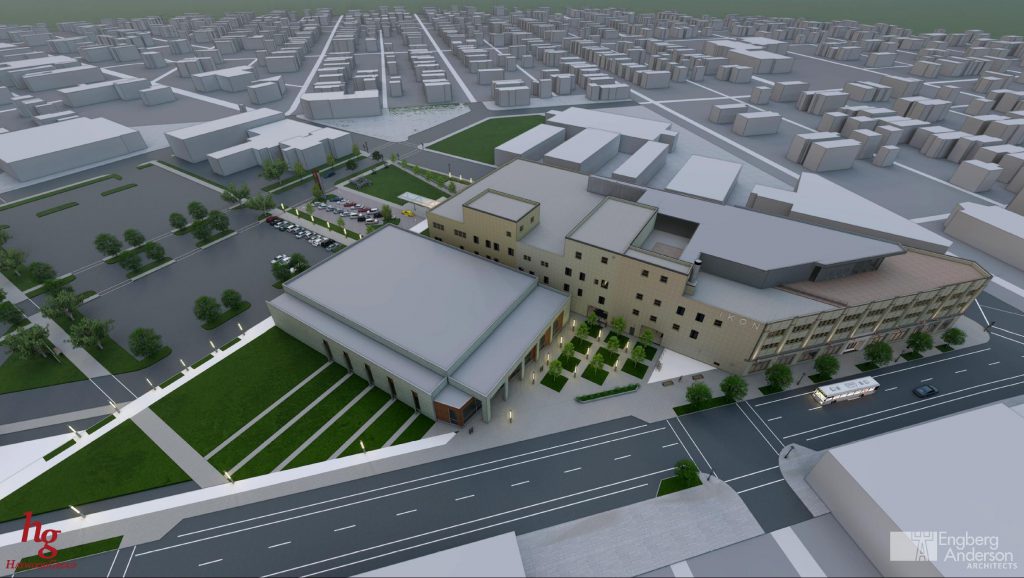
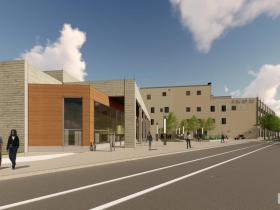
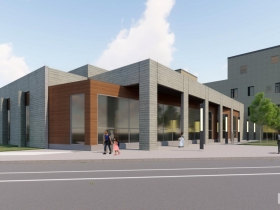
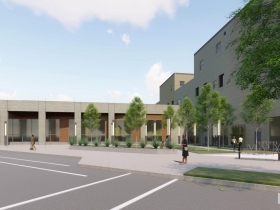
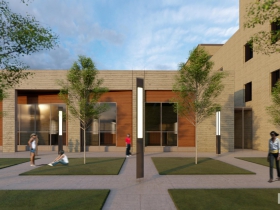
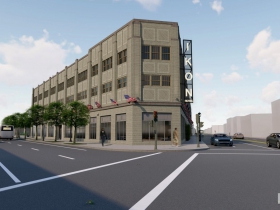
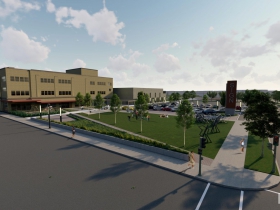
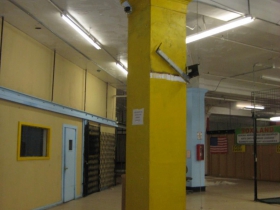
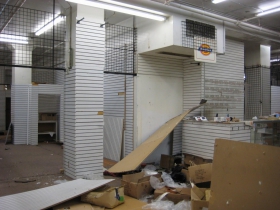
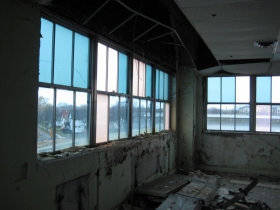
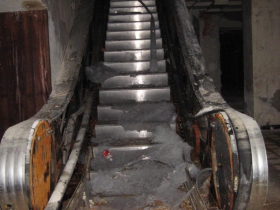
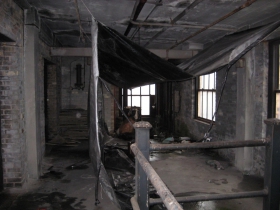
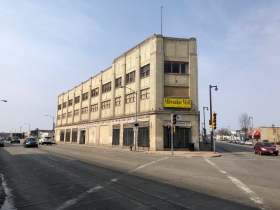
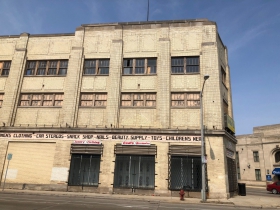
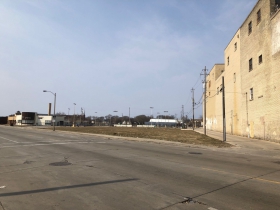
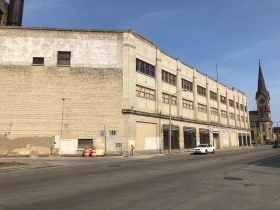
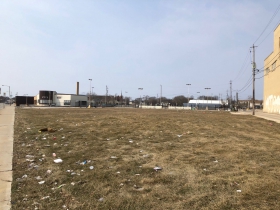
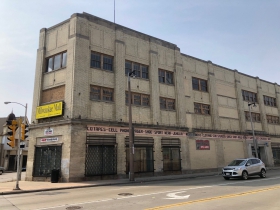




















It seems far riskier for the City of Milwaukee continue its long-time disinvestment of many parts of the city.
We cannot just forever funnel endless amounts of tax dollars into sports facilities owned by billionaires, places that most residents cannot even afford to enter. Or invest only in projects located in areas with more affluence.
The gradual rise of Lindsay Heights, where this project is located, has been fostered for decades mostly through the vision and sweat equity of those living and doing business there. Some longtime anchors such as the Fondy Farmers Market have also been key.
Yes, Milwaukee is a Tale of Two Cities. And it’s high time we begin writing a new story–for the good of us all.
Well, Said Virginia!! And thanks to the Council for seeking what can be termed reparation. So much has been taken now it is time to give back. Will success be measured in single bottom line economics or on what seems to be a broader vision of the Good?